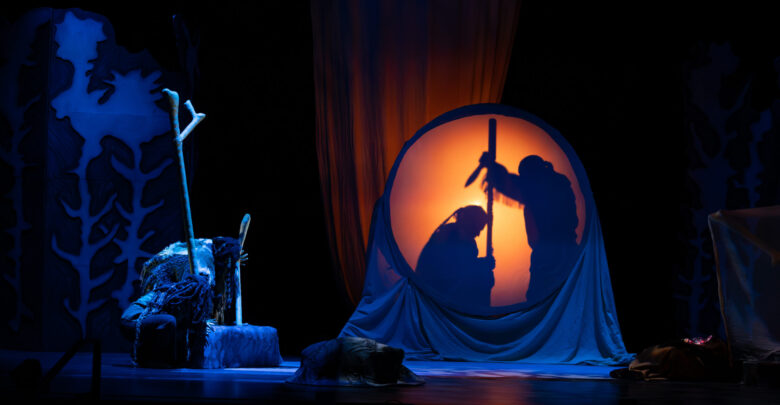Reneltta Arluk on storytelling and ‘Pawâkan’
“The advice that I got was never wait for the phone to ring, and I really heard that, especially as an Indigenous woman at that time," Arluk says.
 Randy Feere
Randy FeereReneltta Arluk has had her hand in a lot of different areas of the performing arts — directing, writing, acting, founding a theatre company. But more at the core of it, she is an Inuvialuk, Gwich’in, and Denesuline, Cree storyteller from the Northwest Territories.
She told The Gateway in an interview that she was born around stories, and stories were always shared with her.
Arluk got into theatre as a political act. “What I was recognizing was that our stories were being told through the lens of others, like an anthropological lens. So people would write about us, but not with us,” she said.
She said it’s changed today, but at the time she felt Indigenous Peoples’ stories weren’t being shared by Indigenous people themselves.
“I stopped reading about us and I started talking to us. So I [started] talking to Elders and knowledge keepers and learning different ways [of storytelling and] I realized that stories can be told in a lot of different ways through music, through art, through theatre, and I thought theatre was just my way to do that.”
“The advice that I got was never wait for the phone to ring,” Arluk says
Arluk went to the Centre for Indigenous Theatre in Toronto when she was 19. After she had completed the one-year program there, she was encouraged to apply to the University of Alberta’s Bachelor of Fine Arts (BFA) in acting program.
She was the first Indigenous and Inuk woman to graduate from the BFA acting program. Arluk said she didn’t really think of being the first at the time, she just wanted to do the work and be an artist.
She said she gives a lot of credit to Jim DeFelice. “I really knew that Jim DeFelice saw me and that made the biggest difference. And so when I did the callback, I was much more confident and then I got in.”
She shared that it was difficult being in the program because she was learning in a way she hadn’t been taught before. Arluk also said there were some faculty members that really tried to not have her be there.
“But every now and then when I started getting really discouraged, there’d be one or two faculty that would just step up and just say, ‘no, Reneltaa has got to be here.’”
After she graduated, she just “went gangbusters.”
“The advice that I got was never wait for the phone to ring. And I really heard that, especially as an Indigenous woman at that time when no one is really programming consistently Indigenous theatre outside of the Indigenous companies,” Arluk said.
She said she just said yes to everything and because of that she got to do a lot of interesting things. Arluk also runs her own theatre company, Akpik Theatre.
Pawâkan: A Cree takeover of Macbeth
Arluk also had the chance to be part of Pawâkan, an Indigenous takeover of William Shakespeare’s Macbeth, with Frog Lake First Nation.
She said at the time, she was working with a theatre company based out of Edmonton. The company would go to Indigenous communities and would do a two to three week Shakespeare residency. During that time, they’d deconstruct Shakespeare and do a performance.
Arluk said they started doing The Tempest but it changed to Macbeth with the cannibal spirit as Macbeth to talk about greed.
“Energies like that are quite powerful and it’s still a living culture, so it’s not like something from the past. So we reached out to the Elders and they came and shared stories and it was a really powerful exchange with the youth and the Elders.”
She said that seeing how the community came together to support the youth through this dark retelling really inspired her.
“It wasn’t entirely embedded, but I really was curious to know if two dark spirits make a positive outcome, and it has every single time,” Arluk said.
Frog Lake First Nation gave her their blessing to continue working with the story while giving credit to Frog Lake First Nation.
Pawâkan is now on its third tour, including a stop in Camrose at the Jeanne & Peter Lougheed Performing Arts Centre on June 17. The U of A’s faculty of arts will also be streaming the performance at Telus 150 on North Campus, with tea and bannock to enjoy while watching. Tickets are free for both events.




